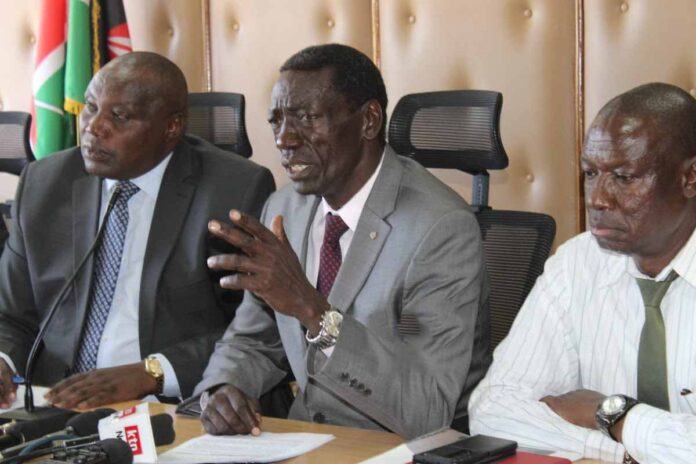The Kenya National Union of Teachers (Knut) has taken a bold stance against the Teachers Service Commission (TSC) Act Amendment Bill, refusing to participate in a stakeholder meeting scheduled for Wednesday. Here’s a breakdown of Knut’s reasons for the boycott:
Lack of Consultation:
- Knut Secretary-General Collins Oyuu expressed dissatisfaction with the lack of consultation regarding the TSC Act amendment draft. He claimed that Knut’s input had been disregarded from the outset, leading to concerns about the bill’s failure to address the interests of teachers.
Fundamental Issues:
- Oyuu highlighted several fundamental issues with the proposed amendments. One major concern is the reorganization of basic education, which the draft suggests should start from primary to teacher training institutions, omitting early childhood development education (ECDE). Knut insists that ECDE should be included in the basic education framework.
- Another contentious point is the absence of clarity on who should bear the cost of teachers’ training and capacity-building programs. Knut argues that the government, not the TSC, should cover these expenses through professional bodies like the Law Society of Kenya.
Violations of Rights:
- Knut raised alarm over potential violations of teachers’ rights in the draft amendments. They criticized proposals that would allow the TSC to determine teachers’ remuneration without union involvement, as well as disciplinary measures that could circumvent fair hearing procedures outlined in the Constitution.
- Additionally, Knut expressed concern about the TSC’s handling of teachers’ pensions, urging the Commission to streamline pension management to avoid delays and ensure timely disbursement to retirees.
Call for Engagement:
- Despite the boycott, Knut called for a special engagement meeting with the Commission within seven days to address their concerns comprehensively. They emphasized the need for meaningful dialogue and collaboration to ensure that teachers’ interests are adequately represented in any legislative changes.
- Knut questioned the haste in soliciting feedback, urging for more time and a thorough review process that prioritizes input from all relevant stakeholders.
Conclusion:
In boycotting the stakeholder meeting, Knut has signaled its determination to safeguard the rights and interests of teachers in the face of proposed legislative changes. They assert the importance of inclusive consultation and dialogue to develop policies that truly serve the needs of educators and the education sector as a whole.
